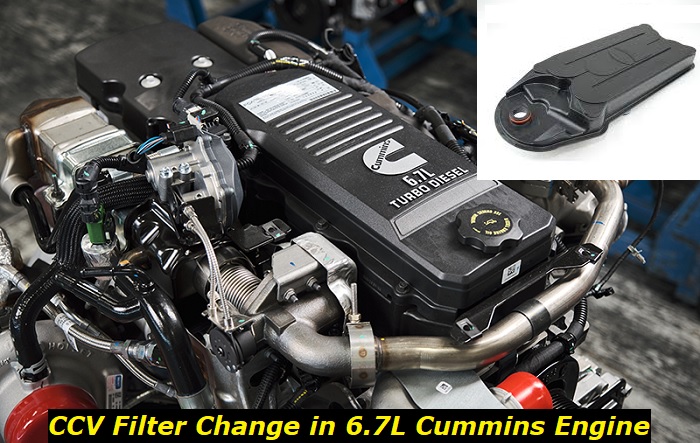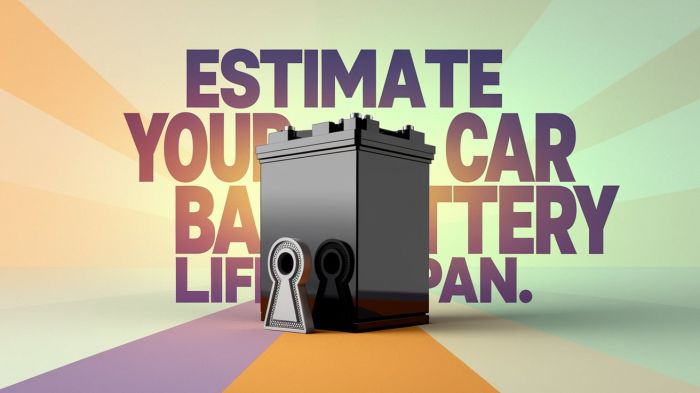The CCV filter is a part of the crankcase ventilation system of a vehicle. Also known crankcase breather filter, the CCV filter is available in internal combustion engines. A relatively small number of cars have this system, including classic muscle cars, racecars, and motorcycles.
Key features and my opinion about the engine
- Production years:2007-now
- Average lifespan of 6.7 Cummins:350,000-500,000 miles
- Fuel supply type:Common Rail
- Power range:150-420 hp
- Fuel efficiency:bad
- Engine block material:cast iron
- Engine reliability score:high
- The most common problems:fuel supply issues, head gasket failure, turbocharger problems.

Therefore, What Could Happen If You do not Change CCV Filter in 6.7L Cummins?
As mentioned earlier, the crankcase ventilation filter is a crucial component of your 6.7L Cummins. It enhances the proper running of the engine by filtering the crankcase gasses before they are emitted into the environment. Moreover, like any other component of your vehicle, the CCV filter requires regular servicing or replacement. The dirt and debris left behind as gasses escape to the outside causes this filter to clog and eventually fail.
This article explains in detail what could happen if you do not change the CCV filter in your Cummins.
1) Oil Will Start to Leak
When pistons move up and down, they drag fumes down into the crankcase, causing pressure to build up inside the crankcase system. These gasses escape through the crankcase vent filter, relieving the engine of this pressure. When the filter clogs, it forces this pressure to find another escape route, which could be a gasket
The pressure could force itself out through the valve cover gasket, the oil pan gasket, the head gasket, or the seals - the front and rear seals. When this happens, it creates an escape route for the oil too.
Therefore, if you notice that your engine is leaking oil from the side of the block, the first place you should check is the CCV filter. If you have a clogged crankcase vent filter, replace it before it escalates the problem further. It would help if you also fix the oil leaks before the pores become holes and start losing oil in tons. It is also advisable that you remember to top up the lost oil after fixing these issues.
2) Your Pistons Could Crack
Cracked pistons are not like oil leaks. You will not see them unless you disassemble the engine completely, which means your Cummins has failed catastrophically. However, this does not make it less of a problem; you have to worry about it if you do not change the CCV filter.
As mentioned in the case of oil leaks, whenever your CCV filter clogs, there will be a considerable amount of pressure build-up. This pressure will try to escape the crankcase vent system through available channels.
However, when it does not find a way out, the pressure tries to create its way, which includes the gaskets, cylinder walls, or pistons. This pressure exerts a ton of strain on these parts, eventually forcing them to give way. The higher the pressure, the bigger the risk of repairing cracked pistons.
Cracked pistons could cause problems to your 6.7L Cummins, including catastrophic engine failure. You will not encounter this as a symptom, which could happen if you do not change the CCV filter.
3) Your Engine Will Suffer Decreased Performance
Another problem you may encounter when you do not change a clogged CCV filter is decreased engine performance.
So, why does your engine lose performance? The engine struggles to operate when gasses build up inside the crankcase vent system and have no escape route. Under these circumstances, the 6.7L Cummins will deliver poor performance. Your truck will not readily pull as much weight as it did in proper working conditions.
Whenever you experience poor engine performance, you should check three filters in your engine, the air, fuel, and CCV filters. These three can affect the performance of the engine significantly when they clog. The good news is that none of these filters is expensive to buy and replace.
Signs That Your 6.7L Cummins CCV Is Clogged
We just talked about the possible problems you may encounter when you delay replacing the crankcase vent filter. Nevertheless, what are the signs that it is time to replace the CCV filter?
- The Check Engine Light Will Come On
The "check engine light" is the first symptom you will see when you have delayed changing your 6.7L Cummins CCV filter. Every Cummins is equipped with a powertrain control module that detects problems with your engine. When the PCM detects a clogged CCV filter, it throws the check engine warning light.
To specify what caused the check engine light to illuminate, you will use an OBDII scanner to retrieve all diagnostic trouble codes stored in the PCM. If your CCV filter is the cause, you will receive a P1507 code - Crankcase Filter Restriction. This code tells you that your crankcase ventilation filter is faulty. If replacement is due, the trouble code will be P1508, Crankcase Filter Restriction - replace the filter.
While on the crankcase filter, you can also check the depression valve. Its code is P1506. You should check it, too, just to be sure.
- High Idle
High idle is another symptom of a faulty crankcase vent filter. Your 6.7L Cummins will experience high idle whenever the CCV filter clogs up. When the crankcase filter clogs, it causes pressure to build up inside the crankcase, consequently affecting the engine's overall performance.
The pressure in the crankcase causes the idle speed to increase significantly. If your engine normally idles at 800 RPM, a clogged CCV filter could raise the idle speed to 1500 RPM or higher.
While this is too high, high idle speed is not the primary problem, but the issue it may cause. Your diesel engine will consume more fuel than usual, and your truck will experience poor emissions.
- Oil in the Turbine
Another symptom of a bad CCV filter is oil on the intake area of the turbo. Whenever the crankcase vent filter clogs up, the pressure build-up inside the crankcase pushes oil through the turbo, leaving a vast oil sludge on the intake side.
Removing the intake hose reveals oil residue right before the turbo compressor. This indicates that your engine's crankcase ventilation does not work correctly, and you should sort the problem out by replacing the crankcase filter.
The good news is that if you sort this problem early, there will not be any damage to the turbo system of your 6.7L Cummins. However, there is considerable concern about this problem when left unchecked. It could cause permanent damage to the turbine. A blown turbo system could cost almost $4,000, with labor charges included.
- Black Smoke from Exhaust Tailgate
It is usual for a diesel engine to emit black smoke from the exhaust when accelerating. However, a clogged crankcase vent filter makes this issue worse. As mentioned earlier, a clogged crankcase filter causes pressure build-up inside the crankcase. When this pressure lacks a way out, it forces itself through the piston rings, gaskets, or cylinder walls.
In the process, the oil may fall on the piston heads and ignite with the diesel fuel. This is the same as burning oil. In most cases, oil drops on piston heads because of faulty piston rings. However, in this case, a defective crankcase filter causes the issue. When oil burns with diesel, it causes black smoke to exit through the exhaust tailgate.
CCV Filter Replacement, How Much Does It Cost?
The CCV filter sits below the plastic cover on top of your 6.7L Cummins engine. According to the Cummins user manual, the crankcase filter comes with a replacement interval of 67,500 and 75,000 miles, depending on the model year. A message will display on your overhead console notifying you of the need to change the CCV filter.
Additionally, a scan with an OBDII scanner will reveal two sets of diagnostic trouble codes showing whether to change the filter. The code "P1507, crankcase filter restriction" indicates a problem with the filter, but you can repair it. The code "P1508, crankcase filter restriction-replace the filter" shows a problem with the filter, but you have to replace it altogether.
In most auto part shops, a brand-new crankcase ventilation filter costs around $100. Expect to pay between $100 and $150 on labor charges. Replacing this critical part of the 6.7L Cummins will not exceed $250. If you do it in your home garage, you will spend half the cost.
Conclusion
This article has explained what could happen if you do not change the CCV filter in time. We have covered the possible problems you may encounter if the CCV filter fails. We have also covered the common signs of a faulty crankcase filter and the replacement cost.
As you can see, it is relatively easy and cheap to replace this component. So, why wait until your truck suffers these problems?
About the authors
The CarAraC research team is composed of seasoned auto mechanics and automotive industry professionals, including individuals with advanced degrees and certifications in their field. Our team members boast prestigious credentials, reflecting their extensive knowledge and skills. These qualifications include: IMI: Institute of the Motor Industry, ASE-Certified Master Automobile Technicians; Coventry University, Graduate of MA in Automotive Journalism; Politecnico di Torino, Italy, MS Automotive Engineering; Ss. Cyril and Methodius University in Skopje, Mechanical University in Skopje; TOC Automotive College; DHA Suffa University, Department of Mechanical Engineering






Add comment